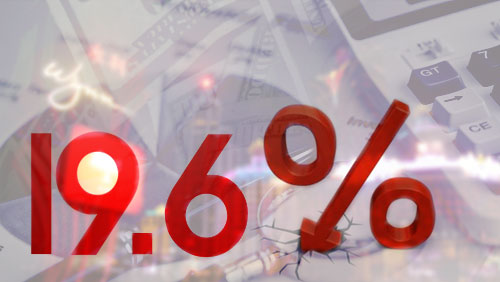Macau’s year-on-year gambling revenue falls 19.6% in November, the sixth straight month of decline.
 According to Macau’s Gaming Inspection and Coordination Bureau, revenue fell to 24.27 billion patacas ($3.04 billion). The decline was higher than the 19.3% decline some analysts estimated.
According to Macau’s Gaming Inspection and Coordination Bureau, revenue fell to 24.27 billion patacas ($3.04 billion). The decline was higher than the 19.3% decline some analysts estimated.
The previous longest losing streak was recorded between 2008 and 2009 when revenue dropped for seven consecutive months as a global credit crisis shattered demand.
The world’s largest gambling hub saw its biggest drop in history in October. The 23% decline came off a high base as October 2013 was the second-best month on record. President Xi Jinping’s two-year campaign against extravagance as well as a weaker Chinese economy have dented earnings of operators.
Macau’s largest casino operator SJM Holdings Ltd.’s shares dropped 41%, the first annual decline this year and the first since 2009.
Sands China Ltd. and Galaxy Entertainment Group Ltd. headed declines in casino stocks, falling 2% and 1.4% respectively. MGM China Holdings Ltd. lost 1.1% and Wynn Macau dropped 1%.
Melco Crown Entertainment was the only company that rose with a 0.2% gain.
Deutsche Bank Remains Bullish On the World’s Biggest Gambling Market
On November 18, the Chinese government announced that starting on December 18, the Cotai border gate will be open 24 hours a day. The border crossing was previously only open from 9 AM to 8 PM.
The moves may increase the number of gamblers and the amount of time they spend at tables.
The Gongbei border gate, which accounted for about half of Macau’s visitors in the third quarter, will also extend its operation by two hours.
Deutsche Bank analysts believe that the extra Gongbei gate access will not only allow for more visitors, it will ease congestion at the gate. The 24-hour access at the Cotai gate could also encourage visitors to stay outside of Macau but still gamble there.